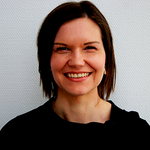Blog
Modelling to influence poverty and inequality in Zanzibar
Latest addition to the SOUTHMOD programme
ZANMOD, the tax-benefit microsimulation model for Zanzibar, was launched in November 2023. The model will aid local authorities and researchers in understanding how taxation and social protection policies can be improved to reduce poverty and enhance equality.
The research and coding work for the model was initiated in late 2022. A separate model was developed for Zanzibar to enable harmonized analysis using a common platform across the entirety of the United Republic of Tanzania, as well as comparative analysis with other SOUTHMOD country models.
Despite the strong tourism sector and recent reductions in poverty, 25% of Zanzibarian households are still considered poor, with levels of consumption expenditure not sufficient to afford a standard consumption basket (required to secure 2,200 daily calories per person). The national team and colleagues at UNU-WIDER believe that ZANMOD will help solve these challenges.
Get to know and read more about national teams’ thoughts as ZANMOD ventures out in the world:
Issa Moh’d Hemed
 Issa Moh’d Hemed serves as a Lecturer and Head of the Department of Economics at Zanzibar University in Tanzania, and the team leader of ZANMOD national team. He attained his PhD in Economics in 2021 from the Capital University of Economics and Business (CUEB) in Beijing, China.
Issa Moh’d Hemed serves as a Lecturer and Head of the Department of Economics at Zanzibar University in Tanzania, and the team leader of ZANMOD national team. He attained his PhD in Economics in 2021 from the Capital University of Economics and Business (CUEB) in Beijing, China.
Before assuming his current academic position, Issa was a project coordinator in the First Vice President's Office of the Government of Zanzibar. He has also contributed to the field of development economics, with numerous articles focusing on sub-Saharan and East African countries. He has undertaken consultancy projects with the Research and Poverty Alleviation Program Limited (REPOA) and the African Economic Research Consortium (AERC). Issa also played a key role in the collaborative GPIR project, which examined the relationship between growth, poverty, inequality, and redistribution in Africa.
‘I am driven by a commitment to contribute to Zanzibar's socioeconomic development. One of my aims is to assess the impact of the Zanzibar Universal Pension Scheme on poverty and inequality using ZANMOD.’
‘The launch and the first training session of ZANMOD equipped participants with the knowledge and skills to effectively utilize the Zanzibar tax-benefit microsimulation model for policy analysis and decision-making.’
‘The creation of ZANMOD was a result of fruitful collaboration with colleagues from UNU-WIDER, SASPRI, and the Tanzanian TAZMOD team. I believe the new model will offer valuable contributions to academia and public service in Tanzania in general and Zanzibar in particular.’
Haji Gora Haji
 Haji Gora Haji is head of the Planning Division of the Department of Planning, Policy, and Research at the Second Vice President’s Office in Zanzibar, and a member of the ZANMOD national team. He has almost 10 years of working experience in the office. Haji is a Doctor of Economics from Peking University, China.
Haji Gora Haji is head of the Planning Division of the Department of Planning, Policy, and Research at the Second Vice President’s Office in Zanzibar, and a member of the ZANMOD national team. He has almost 10 years of working experience in the office. Haji is a Doctor of Economics from Peking University, China.
‘It has been a wonderful opportunity to collaborate with academic researchers from SASPRI and UNU-WIDER to build ZANMOD. I have picked up a lot of knowledge and new concepts about the preparation of the input dataset for the model and analyzing its results based on potential policy reforms.’
‘The first ZANMOD training included 21 participants and helped them acquire skills and deep knowledge for the effective utilization of the SOUTHMOD model in the case of Zanzibar. I believe the training sessions serve to provide substance knowledge for constructive change, allowing governments and policymakers to make informed decisions that lead to social impact and economic intervention.’
Ramadhan Ramadhan
 The development of the ZANMOD model is further supported by Mr. Ramadhan Ramadhan, who is based at the Second Vice President's Office in Zanzibar. Ramadhan has participated in previous training events for TAZMOD, and was one of the authors of the original feasibility study for ZANMOD. His primary focus is on engaging policymakers and public officials in Zanzibar with the model. His contributions have been critical in securing widespread national ownership of the model and in obtaining access to relevant data.
The development of the ZANMOD model is further supported by Mr. Ramadhan Ramadhan, who is based at the Second Vice President's Office in Zanzibar. Ramadhan has participated in previous training events for TAZMOD, and was one of the authors of the original feasibility study for ZANMOD. His primary focus is on engaging policymakers and public officials in Zanzibar with the model. His contributions have been critical in securing widespread national ownership of the model and in obtaining access to relevant data.
Going forward, the national team will focus on further refining the model, disseminating the related research results to local stakeholders, and planning additional capacity development activities around ZANMOD.
The views expressed in this piece are those of the author(s), and do not necessarily reflect the views of the Institute or the United Nations University, nor the programme/project donors.
 Join the network
Join the network


